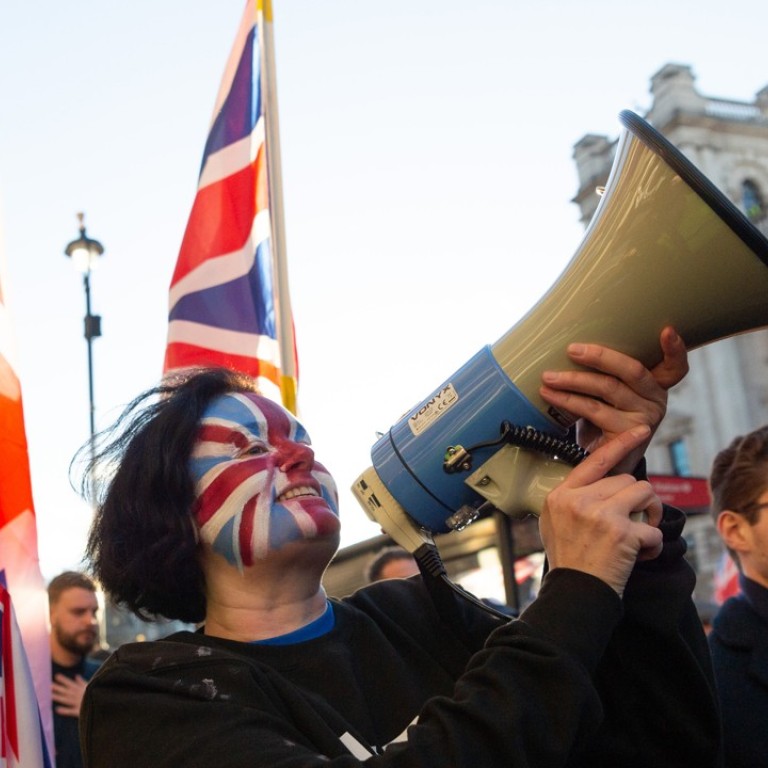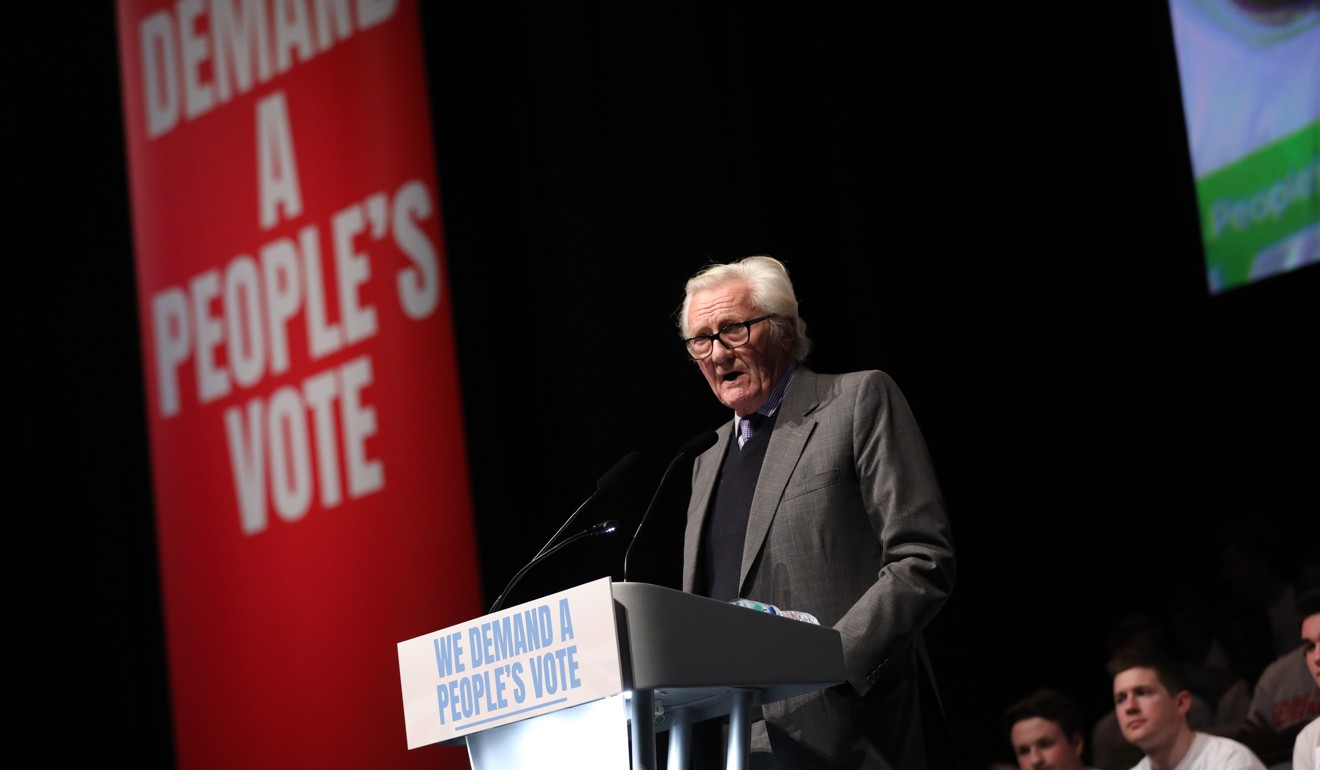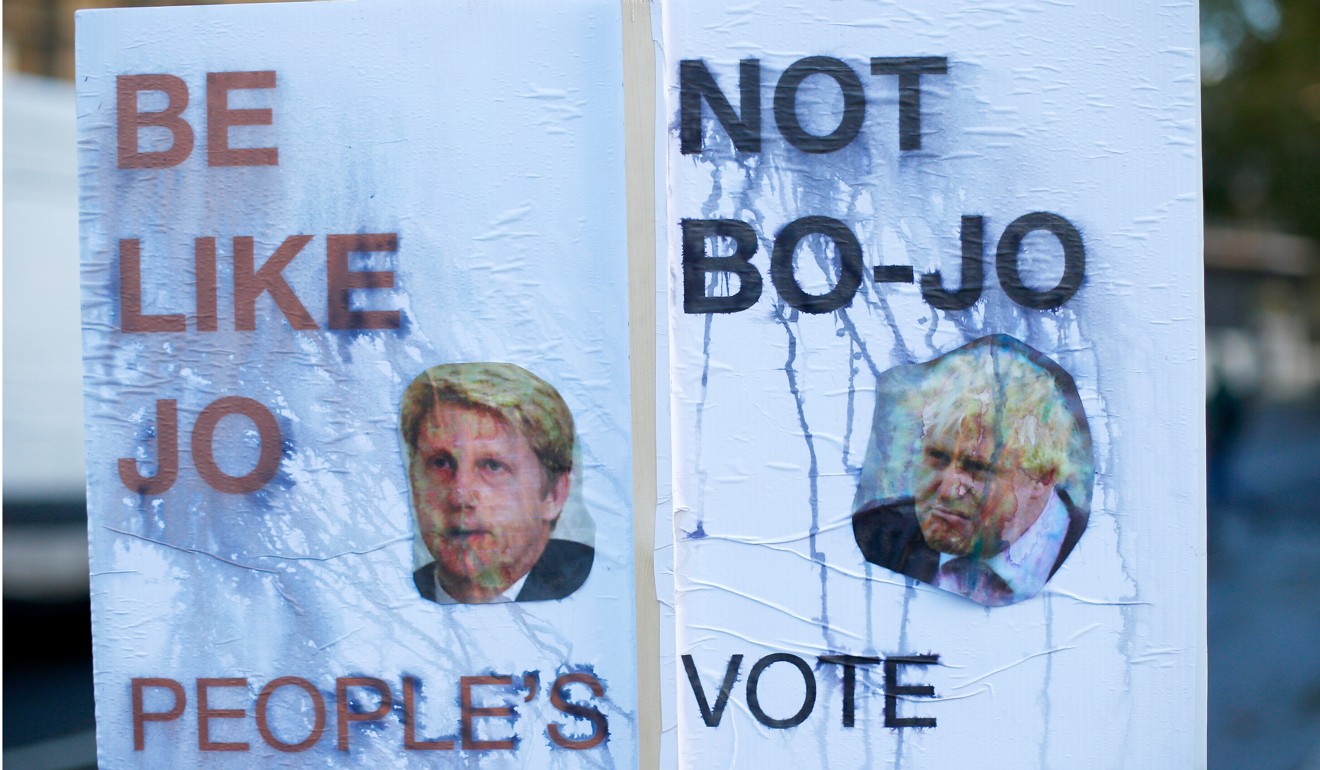
The people need a second Brexit vote – this time on Theresa May’s desperate deal
- Kevin Rafferty says Theresa May and the Brexiteers have misled their country about what awaits after an EU split and the best thing to do would be to vote yet again
The letter and subsequent debates and political chicanery leading up to the key House of Commons vote on the deal must leave all Britons and anyone who cares about the country gravely worried about the future of the UK, whichever way the vote goes.
If Brexit goes ahead, as May has stubbornly promised, it will leave a diminished, poorer and still deeply divided Britain at the risk of breaking up; if the country clings on in the EU, bitter opponents will still be determined by hook or crook to smash the union and go back to the fantasyland when Britain ruled the world.
You might think that if she is appealing to the people, that would be because she is allowing them their say on the deal she cooked up; but no, she was asking them to put pressure on their local MPs, who will cast the make-or-break votes.

Such claims that Brexit was set in stone by the 2016 vote do not stand up. Legal challenges may still be made to the legitimacy of a close-run referendum, in which 52 per cent those voting chose to leave the EU – that’s about 26.4 per cent of the total UK population.
But she has stuck to it, essentially demanding that she – and she alone, given her office’s charge of the negotiations and the departure of leading ministers – must be the judge of what the people voted for.
What they voted for is not clear, since different people had different priorities. The leave campaign promised a more beautiful tomorrow if Britain left the EU: a land of freedom on the other side of the rainbow; no longer having to negotiate over the shape of bananas; control of immigration so Britain’s housing and social services would not have to cope with millions of “intruders”; more money for the beloved, beleaguered National Health Service; full sovereignty of the UK Parliament and courts, to appeal to jingoists who resented kowtowing to Brussels and longed for the good old days when, they fancied, Britain ruled.
May’s letter to the people offered: “a good Brexit deal … in our national interest – one that works for our whole country and all of our people, whether you voted ‘Leave’ or ‘Remain’.”
May’s deal is more expensive and less good than being in the EU, though it is better than crashing out with no deal. In a matter of days, May may get her comeuppance. Members of Parliament have shown their restlessness and voted the government down three times, including a measure that will allow MPs to propose their own amendments if May’s deal is voted down.
This illustrates Britain’s plight. If Parliament votes “no” to May, it could be like sacking the driver of the bus, mid-ride, and then allowing a scramble for anyone and everyone to take the wheel.

The only sensible solution is to throw the question back to the people – You voted for Brexit; vote on the Brexit May is offering. If you don’t like it, do you prefer to leave with no deal, or stay in the EU?
It is a simple – dangerous – proposition. The original referendum offered a more beautiful tomorrow without saying how it could be achieved and without a price tag, as if free. But reality is a scarce commodity in political Britain today.
Opposition leader Jeremy Corbyn, whose grip on the world often seems flaky, believes he could magically negotiate a better deal, when Brussels has closed the doors to discussions. Brexiteers profess a fantasy of recapturing sovereignty and being a world power.
In Britain, Brexit is top of the news. Outside Britain, few people care. The EU offers a declining Britain comfort from the cold economic and political winds of the 21st century. If Britain wants to walk outside, the choice should be given to the people again.
Kevin Rafferty is a political commentator

